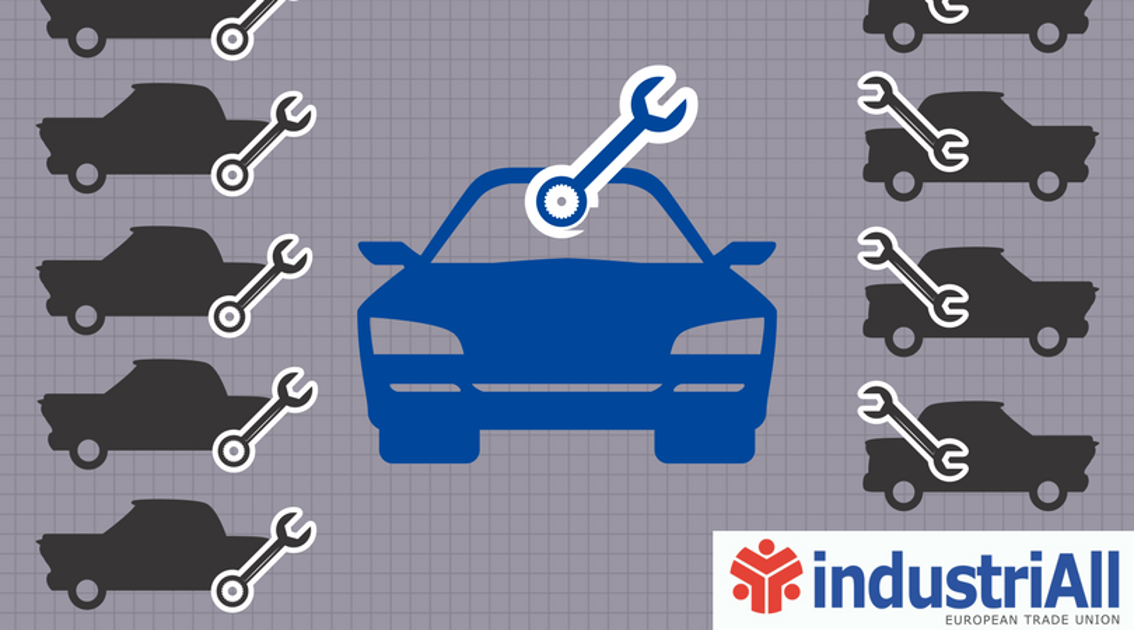On 1-2 March, the Blueprint for Sectoral Cooperation on Skills in the automotive industry was successfully launched during a conference in Ostrava. The conference gathered representatives from the 24 partners involved in the project (universities, training providers and industrial partners from the automotive industry - industriAll Europe being one of them).
The Blueprint for Sectoral Cooperation on Skills is one of the ten key actions of the New Skills Agenda for Europe adopted by the Commission. The Blueprint provides a new framework for strategic cooperation between key stakeholders at sectoral level. The ambition is to develop a sectoral skills strategy in support of the overall growth strategy for the automotive industry. This strategy has to be based on the major trends that are likely to affect jobs and skills with a view to identify priorities and milestones, which should result in concrete actions and solutions enabling the sector to address current skills gaps and future skills needs.
For the project partners it is clear that the cars of the future will be different and thus the skills needed to produce them will logically differ as well. Indeed, the automotive sector faces multiple challenges and opportunities that will also have a strong societal impact. The sector is in turmoil because of so many structural changes taking place at the same time: the ever stricter emission standards and the resulting quest for alternative powertrains, the digitalisation of production processes, automated driving, the increasing connectivity of cars with the outside world, development of mobility as a service. These developments offer great opportunities for innovation and for a sustainable development of our transport system. Workers will have to acquire the skills that live up to the new challenges, while jobs can be put at risk in conventional technologies.
The Blueprint for skills in the automotive sector builds on previous initiatives taken by the Commission and sectoral partners, in particular the Sector Skills Council and the High-Level Group GEAR 2030.
The automotive Blueprint is part of a first wave of sectors that got approval from the Commission (besides automotive, projects in Maritime Technology, Space, TCLF and Tourism were also accepted). In a next wave, sectors including additive manufacturing, green technologies, maritime shipping, paper and steel will be eligible for funding.
The different work packages were discussed during the conference. They mainly address the following topics:
- Developing a strategic roadmap on future skills needs by building sectoral skills intelligence on emerging and declining skill needs in the sector. Improving the capacity to forecast, anticipate and match future skills and labour market needs is a precondition for the design of efficient employment and training policies.
- Developing the skills framework by describing new job roles that are key for the future of the sector, while at the same time establishing training facilities and certification schemes. Skills sets for the automotive industry should be transparent, recognisable and comparable across Europe. Therefore, standardised skills sets and skills portals services (skills learning portals, skills assessment portals, job role certification) have to be provided and deployed into more Member States than has been done so far.
- Supporting the transferability of skills. Mutual recognition of skills between Member States and creating pathways between schools and industry as well as between vocational training and universities are important tools for supporting the professional mobility of workers
- Organising a European-wide scheme for apprentices in the automotive sector by building an appropriate IT infrastructure
- Promotional activities in order to support the uptake of the results of the projects.
The automotive Blueprint will run over four years and will receive an impressive sum of 4 million euros of funding from the Commission. This will put the automotive industrial partners in the driving seat for addressing future skills needs. IndustriAll Europe considers the Blueprint for Sectoral Cooperation on Skills a key vehicle for delivering the GEAR 2030 recommendations on skills. These recommendations insist on rolling out initiatives for all workers in the sector, regardless of their skills level. All low- and high-skilled workers in SMEs and MNCs need to be retrained to be able to work with the technologies of tomorrow. Indeed, competence development has become more important than ever in a fast-developing automotive industry and its future jobs are likely to require a different mix of skills necessitating permanent upgrading of all skills levels.
